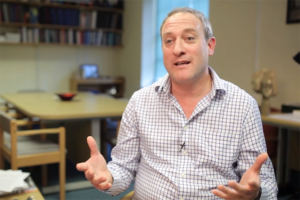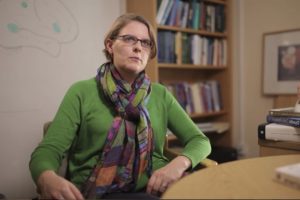Episodic Memory
Neuroscientist Neil Burgess on different types of memory, the H.M. patient case, and the role of hippocampus i...
Do criminals deserve punishment if they are not free in their actions? What practical applications does the philosophy of free will have? How do brain sciences contribute to the debate about free will? These and other questions are answered by Susan Linn Sage Professor at the Sage School of Philosophy, Cornell University, Derk Pereboom.
Ordinarily it is presupposed in daily life that we are morally responsible for our actions in the following sense that when people perform actions that are bad they deserve to be blamed for them, and when people perform actions that are good they deserve to be praised for them. If they are especially bad we believe that people deserve to be punished for their actions. But there are certain traditional threats to this position that stem from metaphysical views about the world.
Nowadays people typically don’t frame the problem for moral responsibility in terms of God’s actions or God’s determining will, but rather in terms of natural determinism. So the worry is that maybe the world is such that any particular state of the world in accordance with the laws of nature determines any subsequent state of the world. So that all of our actions are causally determined in virtue of states of the world before we were born in accordance with the natural laws. That’s been taken to be a threat to our ordinary presupposition that we deserve a blame for the bad actions we perform and we deserve a praise for the good actions we perform.
Another reason why many philosophers today are interested in the free will problem is that there are very interesting results coming out in neuroscience. One picture of the mind that comes from Decartes is that the mind is wholly conscious, whatever mental states are involved in the causation of action are conscious and available to conscious reflection. But that picture seems to be false.

Neuroscientist Neil Burgess on different types of memory, the H.M. patient case, and the role of hippocampus i...

Neuroscientist Antonia Hamilton on transcranial magnetic stimulation, social relationships, and why people wit...

Psychologist Helen Tager-Flusberg on theory of mind, comorbidity, and symptoms of autism